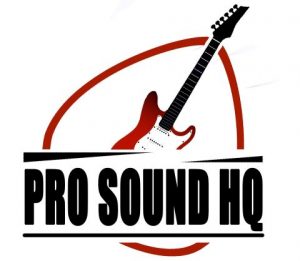If you’re interested in buying an SG, you’re spoiled for choice with plenty of Epiphone and Gibson models to suit different budgets, but what is the difference between them? In this article I’ll compare Gibson and Epiphone SG guitars so you can figure out if the Gibson is worth the extra money.
Gibson SG electric guitars are made in the USA, whereas Epiphone SG electric guitars are made in China. The main specification differences are the pickups, body finishes and fingerboard materials. Epiphone SG models cost $550 on average whereas Gibson SG models cost $1800 on average.
| Gibson SG | Epiphone SG |
| Made in the USA | Made in China |
| Cost between $1300-$2500 | Cost between $200-$950 |
| Nitrocellulose body finish | Polyurethane/ polyester body finish |
| Rosewood fingerboard | Indian laurel fingerboard |
Models Available and Prices
Before we jump into the specification comparisons, let’s first look at the price difference between all the Gibson and SG models in production.
At the time of writing there are 10 Epiphone SG models available which range in price from $200 to $950 and average at $550. There are 6 Gibson SG models available which start at $1300 and cost up to $2500, with the SG Standard costing $1800.
| SG Model | Average Price |
| Epiphone SG Special E1 | $200 |
| Epiphone Classic Worn P90 | $430 |
| Epiphone SG Special P90 | $450 |
| Epiphone SG Muse | $470 |
| Epiphone SG Standard | $500 |
| Epiphone SG Standard 60s | $550 |
| Epiphone SG Modern | $600 |
| Epiphone SG Custom | $630 |
| Epiphone Prophecy SG | $900 |
| Epiphone 1961 SG Standard | $950 |
| Gibson SG Tribute | $1300 |
| Gibson SG Junior | $1400 |
| Gibson SG Special | $1600 |
| Gibson SG Standard | $1800 |
| Gibson SG Standard ‘61 | $2000 |
| Gibson SG Modern | $2500 |
Pickups and Tone
There are many different Epiphone and Gibson SG models available with different pickups. To some people, the Epiphone pickups on one guitar will sound better than the Gibson pickups on another, so it’s really down to personal preference.
When comparing the Epiphone and Gibson SG Standard models, I personally have a very hard time detecting any difference between them. However, when comparing them with other Epiphone models, I usually find the Epi pickups to be a bit brighter and hotter.
- Gibson pickups are made in the USA
- Epiphone pickups are made in Asia
Check out this YouTube video to hear a tone comparison of some Gibson and Epiphone SG pickups.
Manufacturing Country
One of the biggest differences between Gibson and Epiphone guitars is where they are manufactured:
- Gibson SG electric guitars are made in Nashville, Tennessee in the USA
- Epiphone SG electric guitars are made in Qingdao, Shandong in China
The USA is highly regarded as the best country for manufacturing guitars, whereas Chinese-made guitars are typically mass produced to lower price points so don’t share the same high quality. Since the guitars are cheaper, the craftsmanship and attention to detail that goes into their production is just nowhere near as good as it is with a USA-made Gibson.
Does that mean that Chinese Epiphone SG guitars are bad though? Not at all. You should just be aware that there is a quality difference between them, but not enough to justify the price difference in many people’s opinions.
So what differences can you expect?
- Gibson SG guitars are made with better quality materials e.g. wood and pickups
- Gibson SG guitars will likely have smoother fretwork and more rolled fingerboard edges
- The nut edges will typically be smoother on a Gibson SG compared to an Epiphone SG
- The setup out of the box is usually a bit better and requires less tweaking on a Gibson SG
Check out my article on where Gibson and Epiphone guitars are made for more info.
Body Finish
Another difference between all Gibson and Epiphone SG guitars is the finish used on the body:
- All Gibson SG guitars have a nitrocellulose finish
- All Epiphone SG guitars have either a polyurethane or polyester finish
Nitrocellulose finishes are more expensive to produce and are synonymous with high-end electric guitars, hence the reason why Gibson uses them.
Poly finishes on the other hand are typically used on more affordable guitars, but that does not mean they are inferior, they are just cheaper to produce and better for the environment. A lot of the stigma associated with poly finishes comes from the guitars which were made decades ago. Poly finishes have improved vastly and are much better nowadays.
In terms of the differences:
- Poly finishes are glossier than nitro finishes
- Poly finishes are less prone to fading and less likely to get chipped and scratched
- Nitro finishes feel softer and stickier
- Nitro finishes will change over time resulting in a “relic” finish
Check out my article comparing nitro and poly finishes for more information.
Fingerboard Material
Another notable specification difference between all Epiphone and Gibson SG models is the fingerboard material used:
- Gibson SG guitars have rosewood fingerboards
- Epiphone SG guitars have Indian laurel fingerboards
Again, rosewood is seen as a more desirable material because it is more expensive and rare, so typically only seen on high-end guitars. Indian laurel is a cheaper wood to source, but that does not mean that it is inferior.
There are however several differences between rosewood and Indian laurel fretboards:
- Rosewood feels rougher and has more friction than Indian laurel
- Rosewood is darker and has a more prominent grain compared to Indian laurel
- Rosewood fingerboards are less prone to warping and need oiling less frequently than Indian laurel
The fingerboard material does not have a noticeable impact on the tone of an electric guitar especially once plugged in.
Check out my article comparing rosewood and Indian laurel fretboards for more information.
Hardware
There are some hardware differences (bridge, tuning machines etc.) between Gibson and Epiphone guitars, but not as much as you might think.
A lot of the Gibson hardware is imported from Asia, for example the Grover tuners are shipped from Korea. Some are a bit more sturdy and will help to keep the guitar in tune a bit better, but the Epiphone hardware is actually pretty good quality to be honest.

Headstock
The easiest way to be able to tell the difference between an Epiphone and Gibson SG is by looking at the headstock.
The most notable difference is of course the logo, but the shape also differs. Although both have the “open book” design, the Gibson version is more flared in comparison to the Epiphone version giving them a slightly different look.
Images link to Amazon
Resale Value
After doing a lot of research into the second-hand prices of Epiphone and Gibson SG’s, I noticed that the percentage depreciation is actually quite similar for both. However, since Epiphone guitars are cheaper to start with, you lose less money on them if you sell them later down the line. Equally, you can make a greater saving by buying a Gibson SG second-hand.
Here is a table showing the price differences. Each value is taken from an average of at least 6 guitars on the used market in “excellent condition”.
| SG Model | New Price | Second-Hand Price | Difference |
| Epiphone Classic Worn P90 | $430 | $350 | $80 (19%) |
| Epiphone SG Special P90 | $450 | $390 | $60 (13%) |
| Epiphone SG Muse | $470 | $400 | $70 (15%) |
| Epiphone SG Standard | $500 | $410 | $90 (18%) |
| Epiphone SG Modern | $600 | $480 | $120 (20%) |
| Epiphone Prophecy SG | $900 | $750 | $150 (17%) |
| Epiphone 1961 SG Standard | $950 | $750 | $200 (21%) |
| Gibson SG Tribute | $1300 | $980 | $320 (25%) |
| Gibson SG Junior | $1400 | $1050 | $350 (25%) |
| Gibson SG Special | $1600 | $1200 | $400 (25%) |
| Gibson SG Standard | $1800 | $1450 | $350 (19%) |
| Gibson SG Modern | $2500 | $2100 | $400 (16%) |
Epiphone SG Standard vs Gibson SG Standard
Here is a table highlighting all the specification differences between the Gibson and Epiphone SG Standard models.
| Specification | Gibson SG Standard | Epiphone SG Standard |
| Body Finish | Gloss Nitrocellulose | Gloss Polyurethane |
| Neck Profile | Rounded | 60s Slim Taper |
| Fingerboard Material | Rosewood | Indian Laurel |
| Nut Material | Graph Tech | Graph Tech NuBone |
| Nut Width | 1.694” | 1.692” |
| Hardware Finish | Chrome | Nickel |
| Bridge | Aluminium Nashville Tune-O-Matic | Epiphone LockTone Tune-O-Matic |
| Tailpiece | Aluminium Stop Bar | Epiphone LockTone Stop Bar |
| Tuners | Grover Rotomatic | Epiphone Deluxe |
| Pickups | Gibson 490R/490T | Epiphone Alnico Classic Pro |
| Case | Soft Shell | Not Included |
In terms of the tone, the 490R/T pickups on the Gibson SG sounds a tiny bit darker however it is incredibly difficult to tell the difference between them. The Epiphone Alnico Classic Pro pickups sound fantastic and almost identical to the Gibson pickups.
Check out this YouTube video to hear a tone comparison.
Check out my in-depth comparison between Gibson and Epiphone Les Pauls


